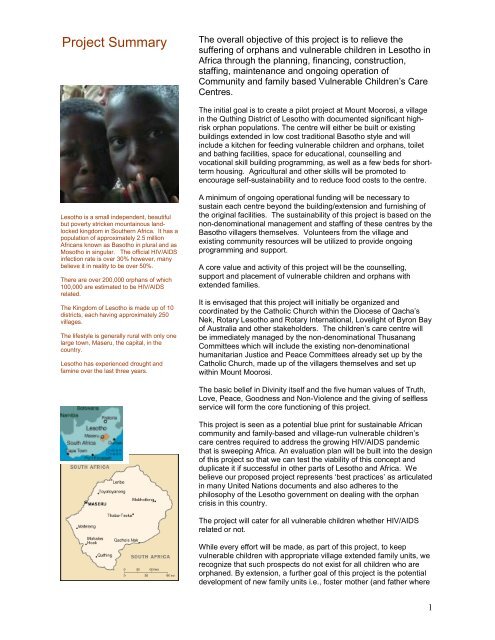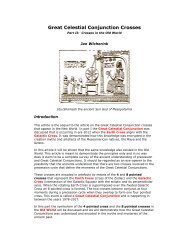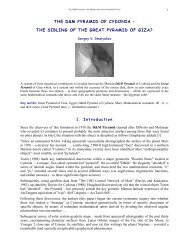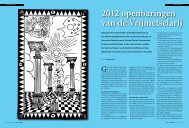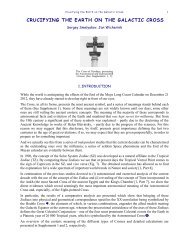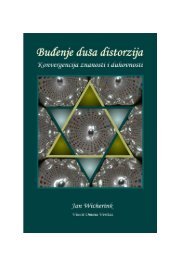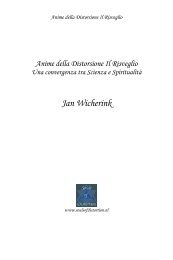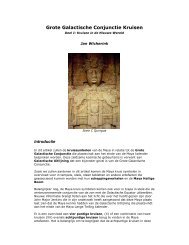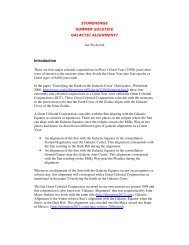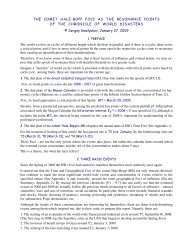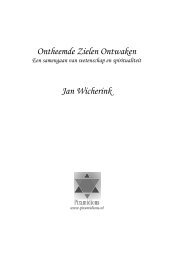Thusanang - Souls of Distortion
Thusanang - Souls of Distortion
Thusanang - Souls of Distortion
You also want an ePaper? Increase the reach of your titles
YUMPU automatically turns print PDFs into web optimized ePapers that Google loves.
Project Summary<br />
The overall objective <strong>of</strong> this project is to relieve the<br />
suffering <strong>of</strong> orphans and vulnerable children in Lesotho in<br />
Africa through the planning, financing, construction,<br />
staffing, maintenance and ongoing operation <strong>of</strong><br />
Community and family based Vulnerable Children’s Care<br />
Centres.<br />
The initial goal is to create a pilot project at Mount Moorosi, a village<br />
in the Quthing District <strong>of</strong> Lesotho with documented significant highrisk<br />
orphan populations. The centre will either be built or existing<br />
buildings extended in low cost traditional Basotho style and will<br />
include a kitchen for feeding vulnerable children and orphans, toilet<br />
and bathing facilities, space for educational, counselling and<br />
vocational skill building programming, as well as a few beds for shortterm<br />
housing. Agricultural and other skills will be promoted to<br />
encourage self-sustainability and to reduce food costs to the centre.<br />
Lesotho is a small independent, beautiful<br />
but poverty stricken mountainous landlocked<br />
kingdom in Southern Africa. It has a<br />
population <strong>of</strong> approximately 2.5 million<br />
Africans known as Basotho in plural and as<br />
Mosotho in singular. The <strong>of</strong>ficial HIV/AIDS<br />
infection rate is over 30% however, many<br />
believe it in reality to be over 50%.<br />
There are over 200,000 orphans <strong>of</strong> which<br />
100,000 are estimated to be HIV/AIDS<br />
related.<br />
The Kingdom <strong>of</strong> Lesotho is made up <strong>of</strong> 10<br />
districts, each having approximately 250<br />
villages.<br />
The lifestyle is generally rural with only one<br />
large town, Maseru, the capital, in the<br />
country.<br />
Lesotho has experienced drought and<br />
famine over the last three years.<br />
A minimum <strong>of</strong> ongoing operational funding will be necessary to<br />
sustain each centre beyond the building/extension and furnishing <strong>of</strong><br />
the original facilities. The sustainability <strong>of</strong> this project is based on the<br />
non-denominational management and staffing <strong>of</strong> these centres by the<br />
Basotho villagers themselves. Volunteers from the village and<br />
existing community resources will be utilized to provide ongoing<br />
programming and support.<br />
A core value and activity <strong>of</strong> this project will be the counselling,<br />
support and placement <strong>of</strong> vulnerable children and orphans with<br />
extended families.<br />
It is envisaged that this project will initially be organized and<br />
coordinated by the Catholic Church within the Diocese <strong>of</strong> Qacha’s<br />
Nek, Rotary Lesotho and Rotary International, Lovelight <strong>of</strong> Byron Bay<br />
<strong>of</strong> Australia and other stakeholders. The children’s care centre will<br />
be immediately managed by the non-denominational <strong>Thusanang</strong><br />
Committees which will include the existing non-denominational<br />
humanitarian Justice and Peace Committees already set up by the<br />
Catholic Church, made up <strong>of</strong> the villagers themselves and set up<br />
within Mount Moorosi.<br />
The basic belief in Divinity itself and the five human values <strong>of</strong> Truth,<br />
Love, Peace, Goodness and Non-Violence and the giving <strong>of</strong> selfless<br />
service will form the core functioning <strong>of</strong> this project.<br />
This project is seen as a potential blue print for sustainable African<br />
community and family-based and village-run vulnerable children’s<br />
care centres required to address the growing HIV/AIDS pandemic<br />
that is sweeping Africa. An evaluation plan will be built into the design<br />
<strong>of</strong> this project so that we can test the viability <strong>of</strong> this concept and<br />
duplicate it if successful in other parts <strong>of</strong> Lesotho and Africa. We<br />
believe our proposed project represents ‘best practices’ as articulated<br />
in many United Nations documents and also adheres to the<br />
philosophy <strong>of</strong> the Lesotho government on dealing with the orphan<br />
crisis in this country.<br />
The project will cater for all vulnerable children whether HIV/AIDS<br />
related or not.<br />
While every effort will be made, as part <strong>of</strong> this project, to keep<br />
vulnerable children with appropriate village extended family units, we<br />
recognize that such prospects do not exist for all children who are<br />
orphaned. By extension, a further goal <strong>of</strong> this project is the potential<br />
development <strong>of</strong> new family units i.e., foster mother (and father where<br />
1


